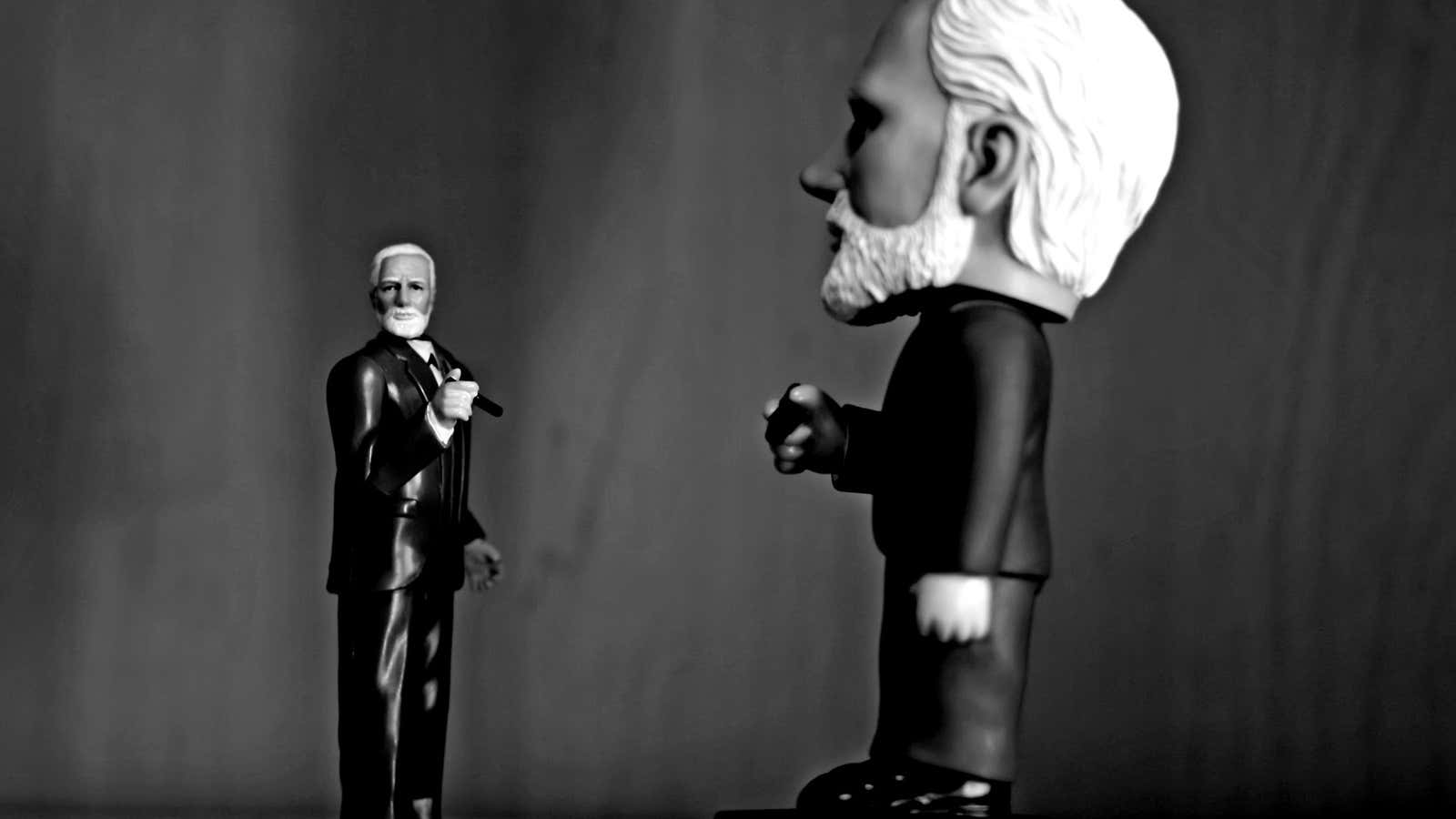Sigmund Freud has a complicated legacy. Many of his theories on human behavior have been proven wrong (or simply naive). But some are making a comeback, thanks to modern science.
A recent example is Freud’s theory of dreams—his most well-known and perhaps most infamous work, according to Josie Malinowski, a psychologist at the University of East London. Freud claimed that dreams are expressions of our unfulfilled desires. Some of these desires may be innocent, such as dreams about living like royalty. Others may be morally unacceptable, like dreams about incest. And sometimes our dreams reveal, against our will, events from our waking lives that we actively try not to think about.
Freud’s intuitive, if controversial, theory proved popular in his day. In the years since, scientists have been able to study dreams more closely. Our current understanding is that dreams don’t serve one purpose but many, from consolidating our memories to firming up brain connections gained from learning new skills.
One aspect of Freud’s theory of dreams is now being backed by experiments: The idea that actively suppressing memories can make them show up in dreams. A 2004 study asked three groups of people to write whatever came to mind for five minutes before going to bed. One group was asked to think about a particular person, another group was asked to not think of that person while they were writing, and the last group was given no specific instruction. The study found that the group trying to suppress thoughts of a person was the mostly likely to encounter that person in dreams.
Since then, researchers have shown that this ”dream rebound” effect doesn’t just make suppressed thoughts more likely to appear in our dreams—often, those dreams are unpleasant. Studies have also shown that people who are good at suppressing memories are more likely to experience dreams connected to real-life unpleasant emotional experiences, and that they also suffer from poor sleep quality.
So, more than a century after Freud published The Interpretation of Dreams, modern psychology has found some use for his theories. At least for some people, such as those in this 2015 study, dream interpretation also seems to be a way to gain beneficial insights for treatment. The research is still quite new, and will need further study before wide use can be recommended. And yet, given that Freud remains popular among many therapists even today, it’s good to know some of his wacky ideas were truly insightful.




